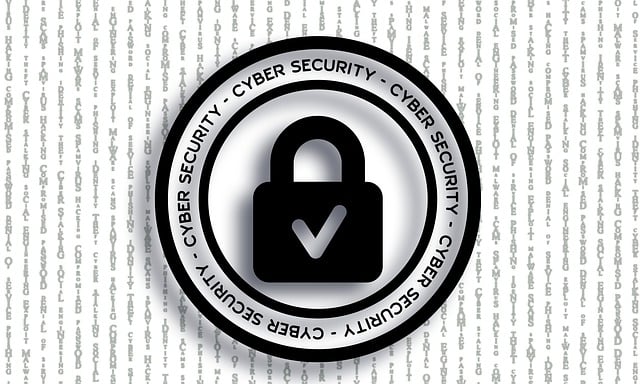In competitive college markets, understanding rental scams is crucial for students securing legitimate accommodation. Be cautious of overpriced listings, fraudulent lease agreements, and pressure tactics. Verify property existence, cross-reference online listings, check tenant reviews, and avoid upfront payments without proper documentation. Research landlords, trust your instincts, and follow safe renting practices to protect against student housing fraud.
Navigating the college town rental market can be a minefield filled with traps designed specifically to target students. Understanding common rental scams is the first step in protecting yourself from becoming a victim of student housing fraud. This comprehensive guide provides essential student rental tips and strategies for recognizing scams, enabling you to make informed decisions and avoid costly mistakes when securing your next off-campus residence.
- Understanding Common Rental Scams Targeting Students
- Tips for Recognizing Red Flags in College Town Rentals
- How to Protect Yourself and Avoid Student Housing Scams
- Exploring Safe Renting Practices for College Students
- Essential Student Rental Tips for Identifying Fraud
Understanding Common Rental Scams Targeting Students

In the dynamic and often competitive landscape of student housing, understanding common rental scams targeting students is a crucial step in securing a safe and legitimate living space. Rental scams in college towns can take many forms, from overpriced and fake listings to fraudulent lease agreements and pressure tactics. Students should be wary of extremely low rent offers that seem too good to be true, as these could indicate a scam. Additionally, be cautious when dealing with unfamiliar landlords or agents who request upfront payments without providing proper documentation or a physical address.
Avoiding rental fraud requires vigilance and awareness. Student renters should thoroughly research potential properties, cross-referencing listings across multiple platforms to verify authenticity. It’s also wise to meet the landlord or property manager in person before signing any documents. Recognizing scams involves knowing your rights as a tenant and staying alert for red flags like high-pressure sales tactics, unusual payment requests, or unexpected changes to lease terms. Following these student rental tips can help ensure a smooth and safe college housing experience.
Tips for Recognizing Red Flags in College Town Rentals

Recognizing red flags is a crucial step in avoiding rental fraud, especially in college towns where demand often exceeds supply. Scammers target students due to their willingness to take risks and lack of experience in leasing. Be wary of listings that seem too good to be true; extremely low rent or promises of free amenities can be signs of a scam. Unprofessional communication is another red flag; legitimate landlords typically respond promptly and clearly. If a landlord avoids direct eye contact during viewings, seems evasive about important details, or urges you to act quickly without time for careful consideration, these could indicate fraudulent intentions.
Before signing any lease, verify the property’s existence and legality through multiple channels. Cross-reference online listings with local real estate agencies or campus housing resources. Check tenant reviews if available, as positive feedback from previous residents can provide valuable insights into a landlord’s reputation. Be cautious of landlords asking for advanced payments, especially if they claim these are necessary to “secure” your rental. Legitimate landlords usually require only first and last month’s rent upfront, and any additional fees should be clearly explained and legally justified.
How to Protect Yourself and Avoid Student Housing Scams

Protecting yourself from rental scams in college towns is crucial for a stress-free and secure living experience. As a student, it’s essential to be vigilant when searching for off-campus accommodation. One of the best ways to avoid student housing scams is to do your research thoroughly. Start by checking reputable online listing sites that verify properties and landlords. Look for red flags like unusually low rent prices or a lack of detailed information from the landlord.
Before signing any lease, meet the landlord in person at the property. Verify all details mentioned in the lease agreement, including rent amount, security deposit, and move-in costs. Legitimate landlords will be transparent about these matters. Additionally, consider joining student housing Facebook groups or local community pages where you can gain insights from fellow students’ experiences, helping you recognize potential scams and find safer rental options.
Exploring Safe Renting Practices for College Students

College students often find themselves navigating a new city and the challenges of finding affordable and safe housing. With rental scams prevalent in college towns, it’s crucial to be aware of potential student rental tips and recognizing scams. Understanding safe college renting practices is essential to protect oneself from falling victim to student housing scams.
Before signing any lease or paying a deposit, students should thoroughly research the area and landlord. Cross-checking listings across multiple platforms, speaking with current tenants (if possible), and verifying contact information are good starting points. It’s also wise to be wary of deals that seem too good to be true—low rent without any catches can often be an early red flag for rental fraud. Recognizing scams involves staying alert for urgent requests for payment, lack of clear terms, or vague communication from the landlord. Always remember to trust your instincts; if something feels off, it may be best to look elsewhere for housing.
Essential Student Rental Tips for Identifying Fraud

As a student looking for accommodation in a college town, it’s crucial to be aware of potential rental scams. With limited options and heightened demand, falling victim to fraudulent practices can seem like an easy trap. To ensure a safe and secure experience, students should approach the process with vigilance and utilize these essential rental tips.
Start by verifying the legitimacy of the property and landlord through official channels. Check online listings against local databases or student housing platforms for accuracy. Be wary of deals that seem too good to be true, as well as demands for upfront payments without a thorough understanding of the terms and conditions. Always read the lease agreement carefully before signing, ensuring it aligns with your rights and expectations, and never provide personal information over the phone or email unless you initiated the contact and verify the sender’s identity.














